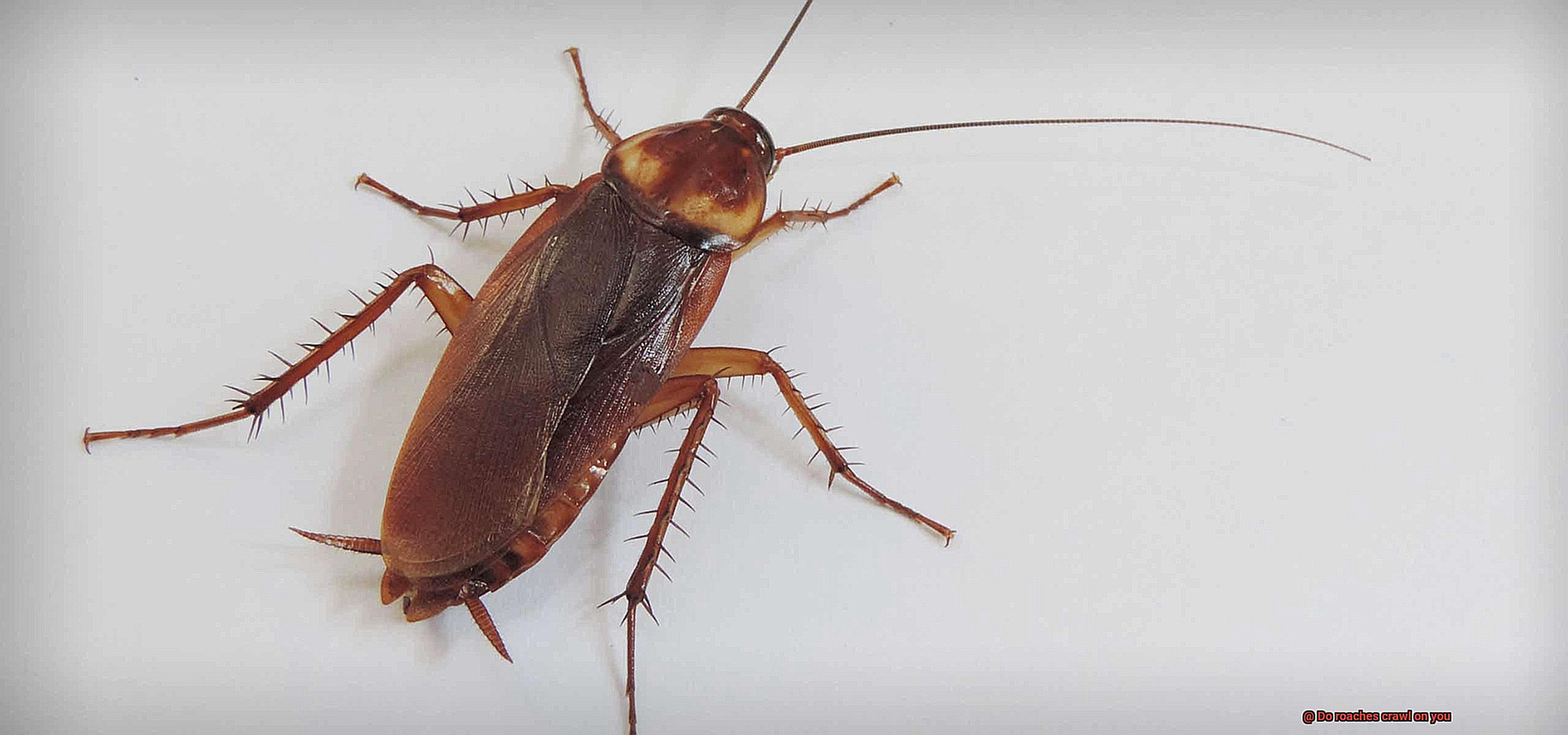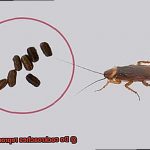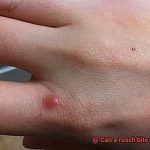Are you one of those people who can’t stand the sight of a creepy crawly insect? If so, brace yourself because this post is not for the faint-hearted. We’ve all had that feeling of something crawling on us in the middle of the night, but what if it’s not just our imagination? The question that many have wondered about for years is – do roaches crawl on you while you sleep?
Roaches are notorious for their resilience and ability to adapt to different environments. They scavenge for food and carry bacteria that can cause diseases. These insects have a knack for squeezing into small spaces and tight crevices, making them difficult to spot. But do they really crawl on humans while we sleep?
In this blog post, we will delve into the world of roaches and explore their behaviors, habitats, and likelihood of crawling on humans. You’ll learn fascinating (and perhaps unsettling) facts about these pests and what to do if you suspect an infestation in your home.
So grab your magnifying glass and flashlight because we’re going on a bug hunt. Get ready to discover everything you ever wanted to know (and maybe some things you didn’t) about our not-so-friendly neighborhood roaches.
What Are Roaches?
Contents
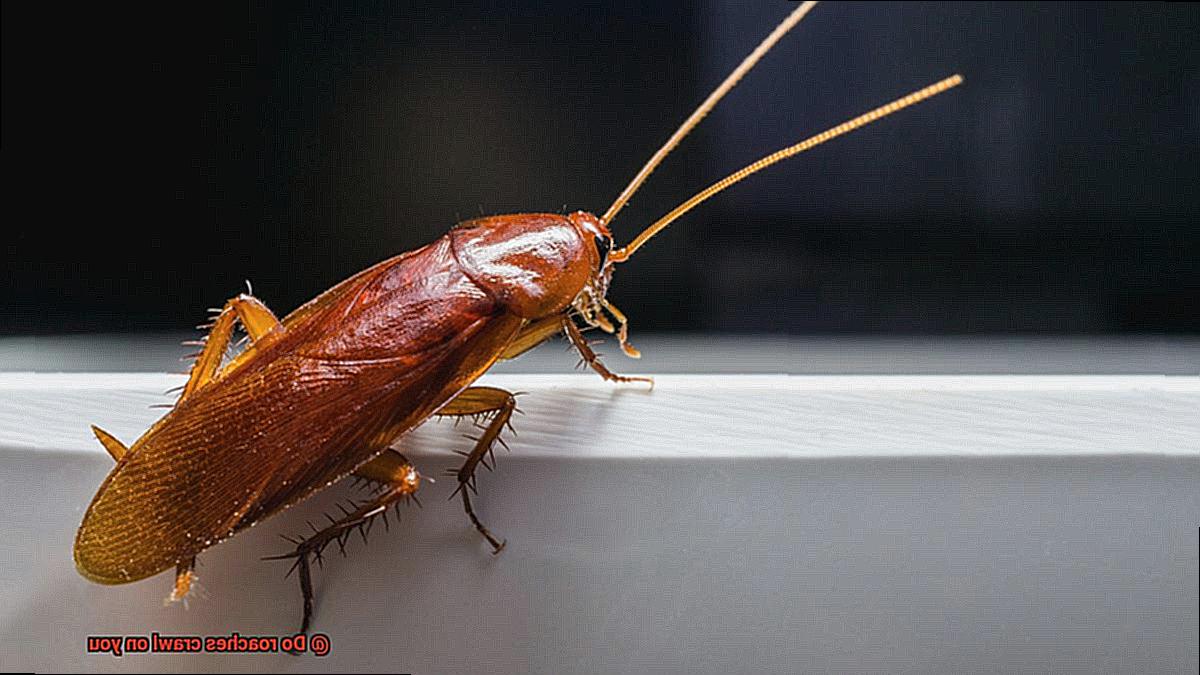
Roaches are notorious for being one of the most common household pests found worldwide. These pesky creatures belong to the Blattodea order, which includes more than 4,500 species. They have flat, oval-shaped bodies, long antennae, and come in various sizes, colors, and shapes. Roaches are also equipped with wings that allow them to fly short distances.
Roaches are nocturnal creatures and are most active at night. They have a strong attraction to warm, dark places and the carbon dioxide we exhale. These creepy crawlies feed on a wide range of organic matter, including leftover food crumbs, grease, and even feces. They can also gnaw on paper products, glue, and fabrics.
While the mere thought of a roach crawling on you may be unsettling, it’s important to note that they are not interested in biting humans or feeding on human blood like other pests such as bed bugs. However, roaches can carry harmful bacteria and allergens that can cause health problems such as salmonella and E.coli.
Roaches are hygienic hazards since they leave behind droppings that trigger allergies and asthma in some people. They can also emit unpleasant odors that can contaminate food and living spaces. Roaches can survive for long periods without food or water, making them resilient pests that are tough to get rid of.
To prevent any potential health risks associated with roaches, it’s essential to take action to get rid of them as soon as possible if you have an infestation in your home. Keeping your home clean by regularly wiping down surfaces and properly storing food can help prevent roaches from infesting your home.
Do Roaches Crawl on You?
Many of us have a fear of cockroaches, and for a good reason. These pesky insects are known to invade our homes and make themselves comfortable in the darkest corners. But the question on everyone’s mind is: do roaches crawl on you?
The answer is yes, they can crawl on you. Cockroaches are attracted to warm and dark places, making our bodies the ideal environment for them to thrive. It may be unsettling to think about, but they may crawl on you while you sleep or when you are sitting still for extended periods.
Although they don’t typically bite humans, cockroaches can carry harmful bacteria and allergens that can be hazardous to your health. They can contaminate your food, surfaces, and even the air you breathe, causing illnesses such as salmonella and E.coli. Their presence can also emit unpleasant odors that can make your living space unhygienic.
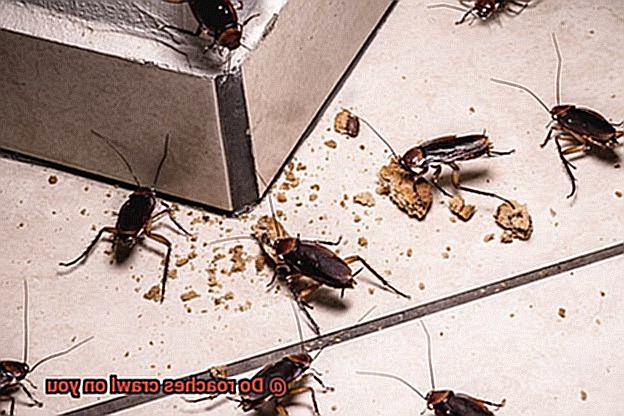
The good news is that there are steps you can take to prevent these creepy crawlers from invading your personal space. Keeping your home clean and free of clutter is essential, as is sealing cracks and crevices where they can enter. It’s also important to store food in airtight containers, take out your trash regularly, and avoid leaving dirty dishes in the sink overnight.
If you do find cockroaches in your home, it’s best to contact a professional exterminator to ensure they are eliminated safely and effectively. Trying to eradicate them yourself may be ineffective or even hazardous if you use harmful chemicals improperly.
Why Would Roaches Crawl on Humans?
It’s not just you – these creepy crawlies can’t resist the warmth and moisture found on human skin. But don’t worry, there are solutions to this problem.
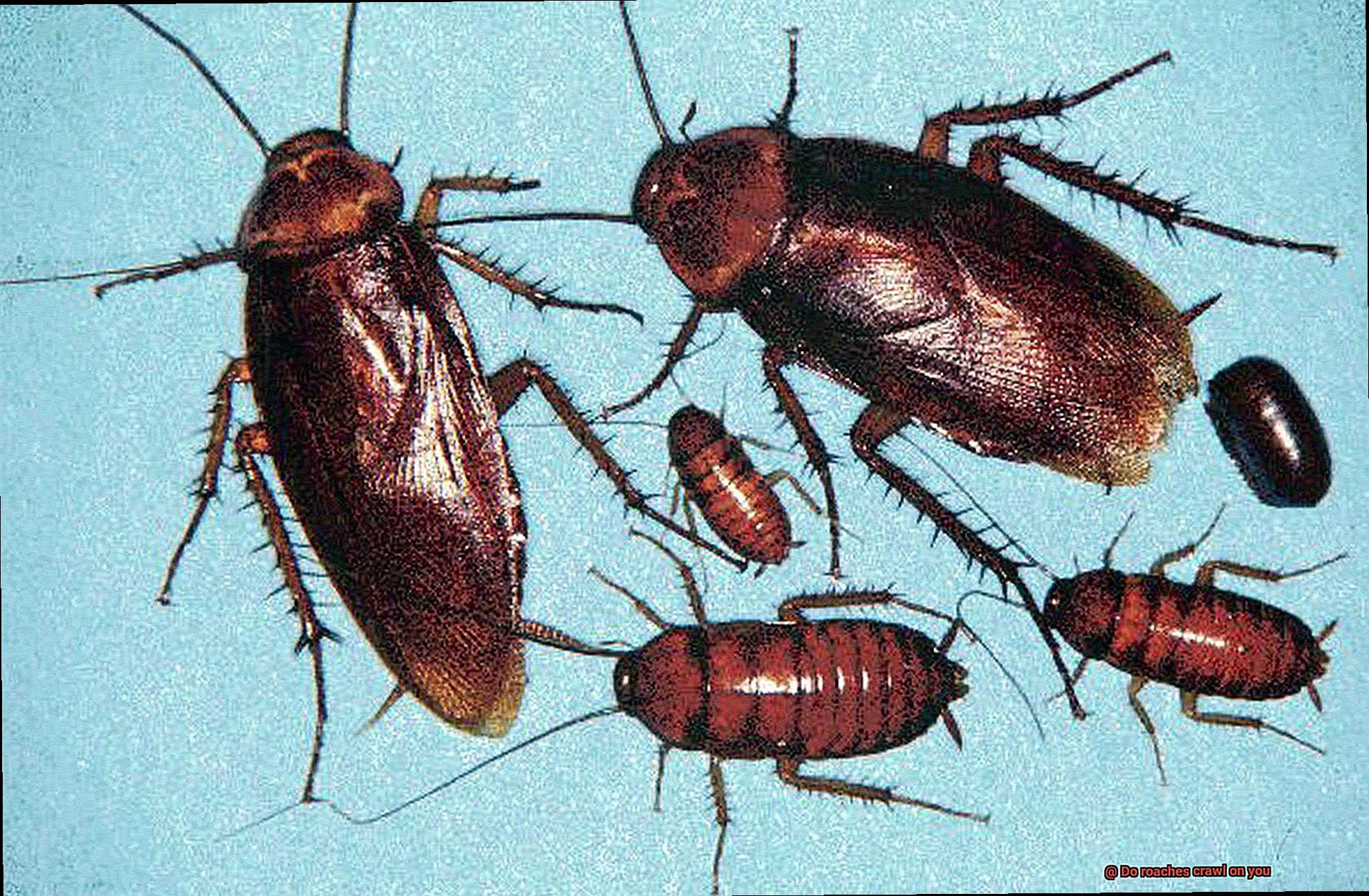
Firstly, roaches are drawn to the heat and sweat that humans produce. At night, when we’re asleep, these nocturnal creatures may take advantage of the opportunity and crawl on us. Additionally, if you have any food residue or spills on your skin, it’s like a dinner invitation for roaches.
Another reason why roaches might be crawling on humans is that they’re trying to escape something. For example, if you use insecticide in your home or accidentally disturb their hiding place, they may try to flee and end up crawling on you as a last resort.
Lastly, if these pests are regularly crawling on you or your family members, it could indicate a larger infestation problem in your home. Don’t ignore it. Take action and call in a professional pest control company to eliminate the problem.
So what can you do to prevent roaches from crawling on you? Keep your living space clean and free of clutter. Seal any cracks or crevices where these critters can enter. Store food properly in airtight containers and take out the trash regularly. By doing so, you’ll reduce the chances of becoming a roach motel.
Do Roaches Bite Humans?
While it’s true that roaches are often associated with biting humans, the reality is that they rarely do so. In fact, their mouthparts are designed for chewing and grinding food, not for biting. So, if you do get bitten by a roach, it’s usually harmless and painless.
However, it’s important to note that roaches may bite humans as a last resort when they feel threatened or cornered. And while the bites themselves may not be harmful, roaches can carry disease-causing bacteria on their bodies and in their feces. This makes it crucial to take precautions such as keeping your home clean and free of clutter, sealing any cracks or crevices in walls or floors, and using insect repellents or traps if necessary.
One of the biggest concerns people have regarding roaches is their tendency to crawl on humans while they sleep. It’s understandable to be unsettled by this idea, but rest assured that roaches are nocturnal insects and are more likely to crawl on humans at night when they’re inactive. To prevent this from happening, make sure your bedroom is clean and free of clutter. Use insect repellents or traps if necessary, and seal any cracks or crevices in your walls or floors.
Are There Health Risks from Roaches?
Roaches are not just a pesky problem, they can also be a serious threat to our health. Research has shown that roaches are carriers of bacteria, viruses, and other pathogens that can lead to various illnesses. These pests can spread these pathogens by crawling on food and utensils, contaminating them with their feces and saliva.
One of the most concerning health risks of roaches is their ability to trigger asthma attacks in people who are allergic to them. Roach allergens can also cause other respiratory problems like coughing and wheezing. Additionally, children who are exposed to roaches have been found to be at a higher risk of developing allergies. Therefore, it’s vital to keep your home clean and free from these pests.
Roaches are also known to carry harmful bacteria such as Salmonella and E. coli which can cause food poisoning. These bacteria can be picked up from decaying matter or contaminated surfaces. When roaches crawl on food or utensils, they leave behind these harmful bacteria that can make people sick. Therefore, it’s essential to maintain high levels of hygiene in the kitchen and avoid leaving food exposed.
Another health risk associated with roaches is their ability to carry parasitic worms such as tapeworms, hookworms, and pinworms. These parasites can easily spread to humans through contact with roach feces or ingestion of contaminated food or water. Infestations of these parasites can result in severe health problems such as anemia, malnutrition, and intestinal blockages.
How to Prevent Roach Infestations
These creepy crawlers can enter homes through small cracks, crevices, and even on household items. It’s crucial to take preventative measures to avoid a roach infestation. Here are five subtopics of advice for preventing roach infestations:
Keep it Clean
Roaches are attracted to food and water sources, so keeping your living spaces clean is essential. Start with keeping your kitchen clean at all times by wiping down counters and sweeping the floors regularly. Ensure that you store food in airtight containers and never leave dirty dishes in the sink overnight.
Seal it Up
Roaches can quickly crawl through tiny cracks and gaps in walls, windows, and doors. Sealing up these openings with caulk or weatherstripping will help keep them out. It’s also necessary to fill any cracks or holes in walls with spackle or putty.
Eliminate Clutter
Roaches love to hide in piles of clutter, so keeping your living spaces organized and tidy is crucial. Clear out any excess papers, boxes, and other clutter that could serve as a hiding spot for roaches.
Natural Repellents
Essential oils like peppermint or lavender can be used as natural roach repellents. These scents are pleasant for humans but unbearable for roaches. You can also use diatomaceous earth (DE), a non-toxic powder that kills roaches by drying out their exoskeletons.
Insecticides and Traps
Using insecticides and traps can be an effective way to prevent roach infestations. There are many non-toxic options available that can be used safely around children and pets. It’s essential to follow the instructions carefully when using any insecticides or traps.
H_HxwLHX8mc” >
Conclusion
In conclusion, roaches are a common household pest that can cause health problems and unpleasant odors. They are attracted to warm and dark places, making our bodies an ideal environment for them to thrive. Although they don’t typically bite humans, they can carry harmful bacteria and allergens that trigger allergies and asthma in some people.
Roaches are resilient pests that can survive for long periods without food or water, making them tough to get rid of. To prevent any potential health risks associated with roaches, it’s crucial to keep your home clean by regularly wiping down surfaces and properly storing food. Sealing cracks and crevices where they can enter is also important.
If you do find cockroaches in your home, it’s best to contact a professional exterminator to ensure they are eliminated safely and effectively. Roaches leave behind droppings that can trigger allergies and asthma in some people. Therefore, taking preventative measures such as keeping your living space clean and free from clutter, sealing up any openings where roaches could enter, using natural repellents or insecticides/traps when necessary will help prevent roach infestations.
Overall, it’s important to be vigilant about preventing roach infestations since their presence poses significant health risks.

